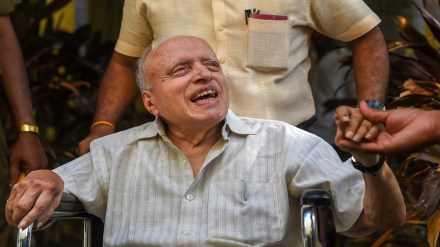Prime Minister Narendra Modi announced on Friday, February 9, that the late Indian agricultural scientist MS Swaminathan, along with former Prime Ministers PV Narasimha Rao and Chaudhary Charan Singh, would be posthumously conferred the Bharat Ratna award.
Taking it to X, PM Modi praised Dr. Swaminathan’s significant contributions to revolutionizing India’s agricultural sector, ensuring food security, and fostering prosperity.
“It is a matter of immense joy that the Government of India is conferring the Bharat Ratna on Dr. MS Swaminathan Ji, in recognition of his monumental contributions to our nation in agriculture and farmers’ welfare. He played a pivotal role in helping India achieve self-reliance in agriculture during challenging times and made outstanding efforts towards modernizing Indian agriculture. We also recognize his invaluable work as an innovator and mentor and encourage learning and research among several students. Dr. Swaminathan’s visionary leadership has not only transformed Indian agriculture but also ensured the nation’s food security and prosperity. He was someone I knew closely, and I always valued his insights and inputs,” he posted.
Also Read:‘I welcome it’: Sonia Gandhi on MS Swaminathan being conferred Bharat Ratna award
‘Father of Economic Ecology’: MS Swaminathan
Mankombu Sambasivan Swaminathan, born on 7 August 1925 was a distinguished Indian agronomist, agricultural scientist, plant geneticist, administrator, and humanitarian. He passed away on 28 September 2023. Widely acclaimed as a global pioneer of the green revolution, he earned the title of the principal architect for his pivotal leadership in introducing and advancing high-yielding varieties of wheat and rice, particularly in India.
During his tenure as the Director-General of the International Rice Research Institute (IRRI) in the Philippines, Swaminathan’s leadership proved instrumental, earning him the prestigious World Food Prize in 1987. This award is recognised as one of the highest honours in the field of agriculture. Additionally, the United Nations Environment Programme has bestowed upon him the title of “the Father of Economic Ecology.”
Also Read:Bharat Ratna for PV Narasimha Rao, Chaudhary Charan Singh and MS Swaminathan
A legacy of agricultural transformation
Dr M.S. Swaminathan’s journey in agriculture began with a pivotal decision during the Quit India Movement. Inspired by the Bengal famine and Gandhiji’s call for action, he shifted his focus from medicine to agriculture. This early commitment laid the foundation for his lifelong dedication to transforming India’s agricultural landscape.
Joining the Central Rice Research Institute in 1954 marked the beginning of Dr. Swaminathan’s groundbreaking scientific endeavours. His pioneering work in gene transfer for fertilizer response revolutionized crop breeding, contributing significantly to the Green Revolution. Through innovative research and strategic interventions, he played a crucial role in alleviating food scarcity and advancing India towards self-sufficiency in agriculture.
Also Read:In a first, govt confers 5 Bharat Ratna Awards in single year
Global achievements in agriculture
Dr. Swaminathan’s impact extended beyond national borders through his active engagement in global agricultural initiatives. Holding esteemed positions such as Chairman of the Food and Agricultural Organisation Council, he spearheaded efforts to promote sustainable agricultural practices and enhance food security worldwide. His contributions to international agricultural research and development continue to resonate globally.
Advocacy for Farmers’ rights
As Chairman of the Farmers Commission in 2004, Dr. Swaminathan was a staunch advocate for farmers’ rights and welfare. He played a pivotal role in formulating the National Farmers Welfare Policy, emphasising measures like Minimum Support Price (MSP) +50 pecent of cultivation cost +C2 to ensure farmers’ economic viability. His relentless advocacy paved the way for policy reforms aimed at improving the livelihoods of millions of farmers across India.
Political integration and policy influence
Swaminathan’s influence extended into the political arena, where he seamlessly integrated scientific expertise with policy influence. Serving as a Member of Parliament in the Rajya Sabha, he actively championed agricultural reforms and advocated for policies that prioritized the needs of farmers. His unique ability to bridge the gap between science and politics played a crucial role in shaping India’s agricultural policies.
Throughout his illustrious career, Dr. Swaminathan received numerous prestigious awards and honours for his outstanding contributions to agriculture. From the Padma Shri to the Ramon Magsaysay Award and the World Food Prize, his work is globally recognized and celebrated. These accolades underscored his profound impact on agricultural development and food security on a global scale. He was awarded with Ramon Magsaysay Award in 1971 and the Albert Einstein World Science Award in 1986.
Swaminathan has also been conferred with the Padma Shri, Padma Bhushan, and Padma Vibhushan.
